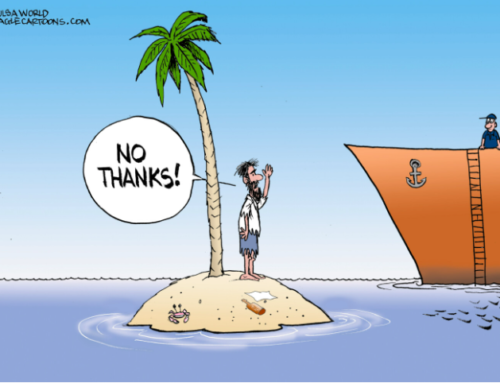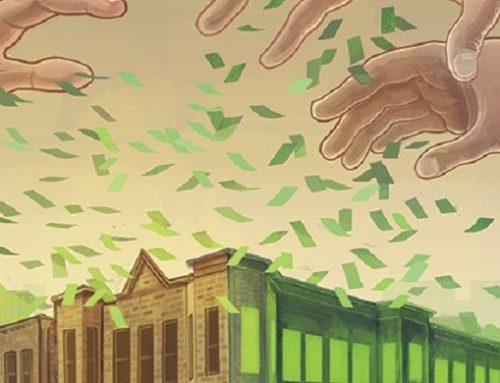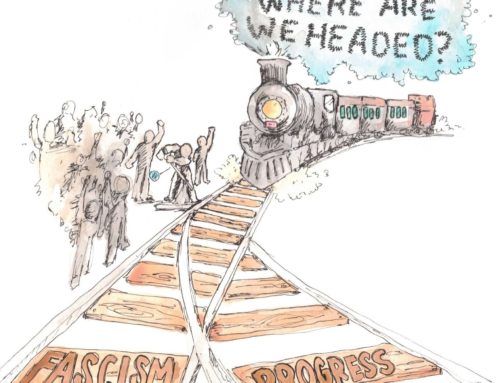Conducted by Stephanie McMillan
Anu Muhammad, an anti-capitalist/anti-imperialist activist and Professor of Economics at Jahangirnagar University (Dhaka, Bangladesh), is the author of more than 20 books. He is the editor of the website Meghbarta.info.
The fire occurred on November 24, 2012 in Savar, Bangladesh, killing more than a hundred workers. The factory produced clothing for a number of US corporations including Walmart, Disney, ENYCE and Dickies.
Stephanie McMillan: We are all very upset and outraged about what happened.
Anu Muhammad: Yes, we all are. You have seen the photographs?
SM: Yes, I have been following the news and seen a lot of photographs, horrifying photographs, and proof that Walmart was involved.
AM: Yeah, Walmart was a major buyer of those garments. At one point Walmart branded this factory as “orange,” [color-coded level of unsafeness] which is a little better than “red.” Walmart has four categories: there is red, which is very dangerous, orange, slightly better, and green. Green is the best and red is the worst.
SM: I’ve heard about the orange rating. Do you believe their claim that they didn’t know that their clothes were made there?
AM: (laughs) Now they’re trying to decline their responsibility. But they are a major buyer, they have been a major buyer of readymade clothes from this company. And there are other international buyers as well, but Walmart was the major buyer. The problem is that everything is non-transparent. Garment owners have their own umbrella organization, the BGMEA [Bangladesh Garment Manufacturers and Exporters Association], to protect their interest. And the government is totally incapable or unwilling to monitor the working conditions of the factories, to protect the interest of the workers.
SM: I’ve heard that a lot of the government agents are also members of that organization and owners of garment factories themselves.
AM: Yes, yes. The garment owners are Parliament members, they are ministers, they are police officers, they are the media owners. So garment owners and the government are inseparable. Garment owners and the media are inseparable.
Legally, there are some requirements for starting a factory. You have to fulfill certain conditions for setting up a factory, there is a building code, locations for a factory. Government is supposed to have certain inspection and monitoring mechanisms. More than 50 garment and other factories were burned in recent years—that shows the government’s total carelessness, unpreparedness, or the unwillingness, to monitor the working conditions. The buyers are the major beneficiaries of this neglect, and the chain stores like Walmart who are part of it and the states—like the United States—are the beneficiaries. If you calculate the surplus value, the major part of surplus value is grabbed by the outsiders, the external parties, who are not involved in the production process. They are the bigger beneficiaries of government carelessness. Most of the factories are not compliant factories. They don’t have the security system, they don’t have satisfactory working conditions. Because of all these methods of reduction of cost, the cost is minimized, profit maximized. And they can supply all these goods at a much lower price, therefore low price of clothes are possible. Many garments importing countries are earning huge import [duties] from these garments. The United States is charging from 15 percent to 30 percent import duty on garments from Bangladesh, which is much higher than that they take from Pakistan or Saudi Arabia, or Turkey, or India. The US makes more than four times on import duty from garments than the so called “foreign aid” they’re giving to Bangladesh! And you know, the majority of foreign aid is taken back by the US through conditionalities, selling their products, and imposing consultants.
So, I think the international campaign on these issues are very important.
SM: I agree. Can you tell me what happens when workers try to organize for better conditions or better wages? Are they allowed to organize?
AM: In the earlier stage, up to the 1980s, our old industries, like the jute industry, textile industry, sugar industry, most of those were public sector industries. Those industries had trade unions. But the World Bank, the US government, International Monetary Fund… [were] always very critical against all these public sector enterprises. Since the 1980s, through a structural adjustment program, these industries were either closed or privatized to a large extent. And the new private, export-oriented enterprises like garments got very friendly support from all those [institutions]. There has always been an understanding that there should not be any trade union activities, because as they say, ‘trade unions hamper the growth of industry’. If you have trade unions, you may lose the international market!
That is dominant idea. They want to impose discipline. That means no workers’ rights. Discipline means no voices, no organization, nothing. The garment workers are not in a position to form trade unions within the factory. And they don’t have time either, they work for 12, 13 or 14 hours, sometimes 18 hours. There are only some umbrella organizations. There are groups linked with outside federations or organizations and they have certain links with garment workers. But within the factory there is no trade union. Not a single one. No trade union is working within garment factories.
Sometimes there is outburst, sometimes there is explosion of anger of the working class. That happens often.
Most of the garment factories are located in residential areas: residential buildings turned into garment factories. They don’t want to spend extra money for building the factory. In older industries, workers had their houses; quarters. And now with modernization and more development, we have factories which don’t have any space: no shelters. Owners don’t have any responsibility to give shelter to the workers. No shelter…They don’t have any responsibility to provide housing, medical facilities or anything. So this is a huge retreat. In the seventies, workers of big factories had medical facilities and they had job security, they had appointment letters, too. Now, after so many big stories of development, workers don’t have any job security. They don’t have appointment letters [proof of employment]. They don’t have shelters. They end up with all this fire and death. This is the scenario.
SM: Can you tell me why the US charges higher tariffs from goods from Bangladesh than from other countries? How do they get away with that?
AM: Higher import duty? Because they can. Because the government, on Bangladesh’s part, don’t take a strong, esteemed position. Also, what the USA is doing more, they always try to blackmail on this issue: that if you don’t accept the oil companies’ gas export plan, if you don’t accept TICFA [Trade and Investment Framework Agreement] agreement, if you don’t sign agreement on other military interests, if you don’t agree to open a pit mine in Phulbari, then you may lose the US market!
SM: Oh, I see.
AM: And the beneficiaries, the local beneficiaries, they always try to bring that issue to counter people’s voices [of opposition], saying it would be catastrophic to the garment industry, et cetera. On the one hand they’re talking about free market economy, but they’re imposing high import duties on Bangladesh. That is a type of protectionism: Protectionist policies and discrimination. …Three percent for one country, fifteen percent for another country. It goes up to thirty percent for some types of clothes from Bangladesh, but fifteen percent is the minimum.
SM: One of the most well-known factory fires in the United States was the Triangle Shirtwaist Factory fire in New York in 1911. The doors were kept locked in a similar way [as in the Tazreen Fashions factory], because they wanted to prevent union organizers from getting into the building. More than a hundred workers died. Do you think that one of the reasons that they locked the doors [this time], is to prevent union organizers from coming inside?
AM: Yes, that is true. There was no fire exit, all floors were locked, and the main gate entrance became deadly because of the stock of synthetic clothes that turned into toxic smoke after [the] fire. Production managers or middle-level managers were highly abusive, did not allow workers to get out in the beginning. They’re used to behaving very badly with the workers. They have their own burden. The owners put this burden on these mid-level managers to get the work done.
SM: Oh, so, they’re forcing them to stay, because they have to get the work done.
AM: Yes. These production or mid-level managers receive an order, and do everything to fulfill it, ignoring capability or conditions of workers. Their career / financial benefits all depend on this performance.
SM: I heard an interview on the radio today with an activist from Bangladesh Center for Worker Solidarity. Are they workers or are they trying to organize workers from the outside?
AM: Mostly, people from outside are acting in the workers movement. The workers don’t have legal opportunity, or the time. What they can do, if they have any holiday in the week, if they have any time, or if they have energy to spend some hours for that organization, they can join in protest or something like that. In the last few days, most of the factories are closed, so workers are outside. Today, there was a confrontation between the police and workers in front of Tazreen Fashion Garments.
SM: Is it actually illegal to organize? So is that one of the demands that people internationally should make…for the right to organize?
AM: Yes, and also for the working hours…
[Also,] they have only ID cards, for pay / compensation. Now, that also becomes a big issue. If something happens, the relatives of the dead workers have a huge difficulty to get compensated, because they don’t have valid papers. They don’t have enough proof. This is very convenient for owners to avoid paying compensation.
SM: Oh, I see. That their relative was even working there. Oh, wow.
AM: So these appointment letters are very important, and the right to form trade unions, and holidays, and working hours, and regular payment.
SM: I heard a rumor that more people died than what’s been reported. That they hid a lot of the bodies before people came. Do you think there is any truth to that?
AM: The number of deaths?
SM: A news article claimed that most of the people were at home and not working at that time, but I heard a rumor that that was a lie and that actually a lot more than 120 were killed, and that they hid the bodies. Is that possible? Do you think that’s true?
AM: I think it is possible, that it was more people, that the number of death is more. It is possible, because of the number of workers who were working at that point, and the conditions, and the missing… there are still lot of families looking for their relatives, workers. So all these things summed together, indicate that maybe the number is more.
Not only this one, for all other fire incidents the numbers of deaths that they present are likely to be underestimated. In all cases, inquiry committees were formed, but no report was published. There is no independent inquiry report either. So all the numbers we are getting, it is from the owners. And owners have direct incentive for keeping it low, to pay less compensation.
SM: Right, so they could be lying.
Is there anything more that you would want to say to people in other countries, especially where the clothes are imported, like the United States, in terms of what people should be doing in response to this? Should they be calling companies like Walmart, should they be trying to fight for different trade rules that are more fair? What else should people here in the US be doing?
AM: I think people of these countries, including the USA where all these garments are going, should know that the major part of the value created by labor in peripheral countries like Bangladesh, are usurped by a small group in both ends. People in the USA should also know what their companies and their governments are earning, from what…working conditions. They should demand that you stop earning this huge profit on blood. People should also make demands to their governments to stop using [the] market as a political tool, to reduce high import duties to ensure higher wages; and make demands to buying companies to stop hiding truths, to ensure fair trade. I think the activists in the western societies may bring some changes in understanding the whole thing, the global system of exploitation and the extraction of surplus value from the blood and sweat of millions of women and men. And also to coordinate struggles in both ends to change this reality.
SM: Thank you.





